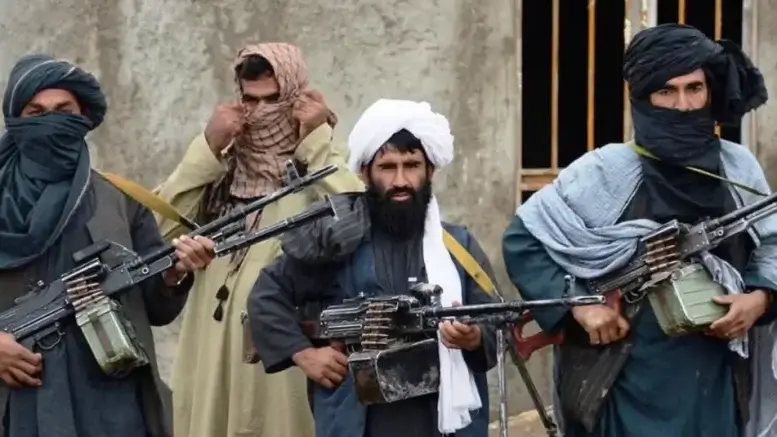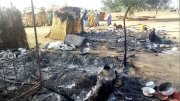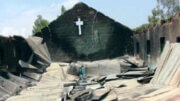The estimated 15,000-20,000 Christians who remain in Afghanistan after the Taliban takeover “face routine torture and persecution from both the government and their own friends, families and communities,” according to a new report.
This is not a new development. From the start, matters significantly worsened for Christians on August 15, 2021, following the Biden administration’s abrupt and poorly-planned withdrawal of U.S. troops, which caused the Central Asian nation to fall right back into the grips of the Taliban, an Islamic terrorist group complicit in the 9/11 attacks on the U.S.
During the chaos of withdrawal, there were even reports that the Biden administration was actively preventing the rescue of Christian minorities from what has since become the sharia-enforcing Islamic Emirate of Afghanistan.
Once U.S. withdrawal was complete, reports indicated that “Taliban militants are even pulling people off public transport and killing them on the spot if they’re Christians.” Any Afghan caught with a Bible app on their phone was reportedly executed. “How we survive daily only God knows,” a Christian Afghan reported on condition of anonymity. “But we are tired of all the death around us.”
According to the World Watch List 2022, which ranks the 50 nations where Christians are most persecuted for their faith, Afghanistan is now the worst nation in the entire world in which to be Christian.
Similarly, Voice of the Martyrs, an international humanitarian nonprofit, offers the following about the 99.8 percent Muslim nation:
Beatings, torture and kidnappings are routine for Christians in Afghanistan. … Christians are martyred every year in Afghanistan, but their deaths generally occur without public knowledge. A few are also in prison… Christian converts from Islam are often killed by family members or other radicalized Muslims before any legal proceedings can begin.
We would appreciate your donation.
Rather tellingly, immediate family members are most prone to persecute and murder converts to Christianity. As Todd Nettleton of Voice of the Martyrs recently explained, although conditions for Christians have “certainly worsened” since the Taliban takeover, “the first line of persecution is your family members, it’s your neighbors.” He explained how converts arouse suspicion when they fail to appear for prayers at their mosques. In just the first eight months of the Taliban’s resumption of power, one clandestine Christian man had to relocate his family three times due to the threat of discovery.
It is worth noting that, while Afghanistan was always bad for Christians, it became significantly worse in response to the U.S. invasion of 2001 (which, over twenty years later, and after spilling much blood and treasure, produced nil). Because Muslims tend to conflate Christians with the West in general, and America in particular—based on the popular but erroneous belief among Muslims that the West and America are still Christian—Afghan Christians were especially targeted after the U.S. invasion as a form of “collective punishment.”
In neighboring Pakistan, as usual (here, here and here) , Christian minorities were also attacked:
Life on any given day for Pakistani Christians is difficult. But members of Pakistan’s Christian community say now they’re being persecuted for U.S. drone attacks on Islamic militants hiding on the border with Afghanistan. The minority, which accounts for an estimated one percent of the country’s 170 million [mostly Muslim] population, says because its faith is strongly associated with America, it is targeted by Muslims.
“When America does a drone strike, they come and blame us,” said one Christian. “They think we belong to America. It’s a simple mentality.”
On the other hand, Western leadership is very careful not to show any concern for Christian minorities—a sentiment that goes hand in hand with Western acquiescence to Islamic sensibilities. If anything, Western leaders are more prone to turn a blind eye to, if not actively discriminate against, already persecuted Christians—as was the case with the UN and the UK, and during the Obama administration.
There is a final aspect to the plight of Christians in Afghanistan, one that more “pragmatic” observers will, no doubt, cite to blame the persecuted themselves. Apparently, many of the few thousand Christians that remain in Afghanistan are there on the same rationale that motivated the earliest Christians. According to David Curry, of the U.S. Commission on International Religious Freedom:
Many Christians did flee Afghanistan when the Taliban took over. Some did stay because they want to be ‘salt and light’ [Matt. 5:13-16 Matt] in a theological sense in that country, even though it became more hostile. So, they want to be part of the community. They love their country. It’s totally understandable why many fled, but there is an embattled Christian community there in Afghanistan still today.
Todd Nettleton confirms this:
[Those remaining Christians] made the incredible bold decision to stay in the country. And their attitude was, ‘Listen, if all the Christians flee the country, who’s going to be here to share the gospel, who’s going to be here to be the church?’ And so they made that courageous decision to stay, even knowing that the Taliban would be taking over; knowing it was a very risky thing.
However one wishes to interpret this, here are the weak and vulnerable altruistically risking their lives for what they at least believe is the good of their fellow man, while many of the world’s rich and powerful, who habitually preach about “human rights” and “religious freedom”—at least when it suits their agendas, for example, to create racial divisions in the U.S., demonize Israel, or cover up for Islamist radicalization—have seemingly done everything possible to exacerbate their situation.





